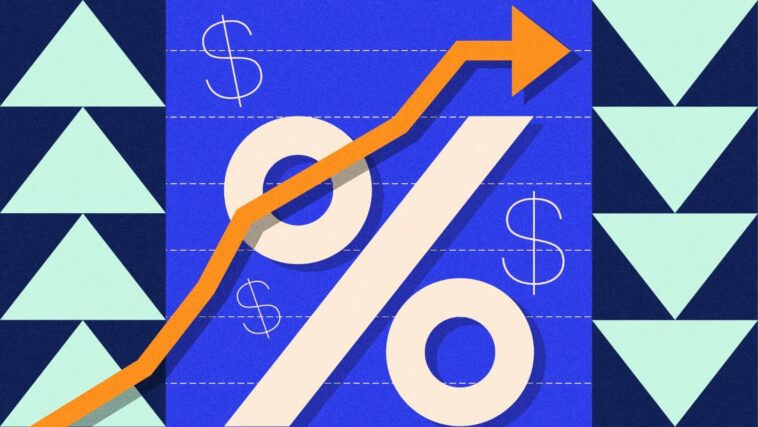Home Loan Interest Rates
Unlocking Savings: Why Home Loan Interest Rates Are About to Drop
Home Loan Interest Rates are poised for a favorable shift as inflation data signals a potential relief for borrowers.
Home Loan Interest Rates: A Glimpse into the Future of Borrowing
In a financial landscape marked by volatility and uncertainty, the recent data on inflation has sparked optimism among homeowners and prospective borrowers. The Reserve Bank’s decision not to raise the Official Cash Rate (OCR) any further has set the stage for a potentially favorable environment for those seeking home loans. Let’s dive deeper into the implications of this data and explore the various facets that could influence the future of home loan interest rates.
The Inflation Data Unveiled
The latest data from Stats NZ paints an intriguing picture of New Zealand’s economic climate. Over the September quarter, prices saw a 1.8% increase, largely attributed to the surge in petrol prices, which skyrocketed by 17%. However, what caught the attention of economists and homeowners alike was the drop in the annual inflation rate. It fell from 6% to 5.6%, a figure below both the market’s expectation of 5.9% and the Reserve Bank’s forecast of 6.1%. Importantly, imported inflation took a dip as well, declining to 4.7% over the year.
Jarrod Kerr, the chief economist at Kiwibank, emphasized the significance of this data, stating that it has “significantly reduced” the likelihood of any further OCR hikes. Some economists had previously hinted at the need for additional rate hikes to control inflation, possibly as early as the next month. However, with the current data, the likelihood of this scenario has dwindled to near zero.
The Ongoing Rate Debate
While Kerr’s prediction is promising news for borrowers, the financial landscape remains marked by uncertainty. The rates market had previously indicated a 50% probability of a Reserve Bank rate hike in November, with the terminal rate in the wholesale market suggesting a nearly full 25-basis-point hike priced by April next year. However, Kerr and Kiwibank’s stance on a reduction in rate hike expectations hints at a different future. They believe the peak in the cash rate may remain at the current 5.5% or possibly even lower, with rate cuts becoming likely by May next year.
But it’s essential to consider a broader spectrum of opinions and insights. ASB, for instance, does not expect any further increase in the OCR, but it’s cautious about predicting a reduction just yet. The bank’s economists cite growing spare capacity in the labor market, global tensions, and tightening financial conditions as factors that might deter the Reserve Bank from a rate cut in the near future. They anticipate the OCR will be held at 5.50% until early 2025, with restrictive OCR settings to ensure that inflation settles below 3%. Only a substantial deflationary shock could push the OCR lower before that point.
Gareth Kiernan, the chief forecaster at Infometrics, pointed out that the latest data eases some of the pressure on the Reserve Bank’s inflation control efforts. The figures indicate that the central bank is making headway in tackling inflation. However, Kiernan adds a note of caution, highlighting the relatively high non-tradable inflation at 6.3% per annum. Most of the improvement in today’s numbers is attributed to tradable figures, despite the rise in petrol prices. It’s also important to be mindful of the potential for higher fuel prices to trigger a rally in inflation next year if they persist at elevated levels.
The Housing Market’s Influence
The housing market, always a crucial factor in the country’s economic landscape, is also a key player in the ongoing debate. A resurgence in the housing market could coincide with an upswing in consumer demand pressures, adding yet another layer of complexity to the equation. The relationship between the housing market and inflation remains an intriguing point of discussion, and experts are keeping a close eye on how these variables may interact in the coming months.
At Westpac, economist Satish Ranchhod suggested that, while the data makes it less likely for the Reserve Bank to increase the OCR next month, core inflation pressures still persist. The extent to which core inflation pressures continue to ease in the December quarter and beyond will be pivotal in determining the likelihood and timing of rate increases next year. The persistence of domestic price pressures implies that the Reserve Bank may not consider rate cuts any time soon.
ANZ’s Projections
ANZ, on the other hand, maintains an outlook that sets it apart from some of its peers. The bank still anticipates another increase, albeit in February rather than November. This perspective introduces a layer of dissent within the financial sector, indicating that uncertainty still abounds when it comes to predicting the Reserve Bank’s future moves.
The Path Forward
The softer inflation data indeed paints a promising picture for home loan borrowers, but the financial landscape remains intricate. While some experts project a future of lower interest rates and the potential for cuts, others hold reservations about the extent of inflation control and the interaction of various economic factors. The housing market, fuel prices, and global tensions add layers of complexity that could influence the Reserve Bank’s decisions in the coming months.
As New Zealand’s financial climate continues to evolve, one thing is certain: homeowners and borrowers will need to remain vigilant, keeping a close eye on economic developments and central bank decisions. Home Loan Interest Rates, it seems, will remain a subject of debate and discussion for some time to come. What are your thoughts on the matter? We invite you to join the conversation and share your perspectives in the comments below. At NewsBurrow Network, we value your insights and aim to foster an engaging and informed community of readers.
Unlocking Savings: Why Home Loan Interest Rates Are About to Drop
Are you a homeowner looking to make the most of the favorable shift in inflation data and home loan interest rates? Well, you’re in the right place. As we delve deeper into the implications of these economic changes, we’ll uncover how they can directly benefit you. Stay with us to learn how you can leverage these developments to secure your financial future.
With the recent drop in the annual inflation rate and a positive outlook for home loan borrowers, it’s the perfect time to consider mortgage refinancing. Lower inflation means the Reserve Bank is less likely to raise interest rates, potentially offering a window of opportunity for those considering refinancing. By taking this step, you can seize the advantage of reduced rates and optimize your home loan, potentially saving a substantial amount in the long run. Don’t miss the chance to enhance your financial situation – keep reading to discover how you can take action and make the most of these changing economic conditions.
Shop Products On Amazon
Products From Amazon
Shop Products on Ebay
Trending Similar Stories in the News
Mortgage Interest Rates Today, October 14, 2023 | Rates Could Fall Soon as Fed Officials Signal no More Hikes - Business Insider
October 14, 2023 - Business InsiderMortgage Interest Rates Today, October 14, 2023 | Rates Could Fall Soon as Fed Officials Signal no More Hikes Business Insider...
Today’s mortgage rates fall for 30-year terms, while 15-year rates rise - Fox Business
October 16, 2023 - Fox BusinessToday’s mortgage rates fall for 30-year terms, while 15-year rates rise Fox Business...
Trending Videos of Home Loan Interest Rates
How does raising interest rates control inflation?
When central banks raise interest rates, the impact is felt far and wide. Mortgages become more expensive, house prices might fall ...
INFLATION, Explained in 6 Minutes
Why Everyone is Worried About Inflation Go to our sponsor https://betterhelp.com/johnnyharris for 10% off your first month of ...
Similar Posts, Popular Now
UC Berkeley Space Center Partnership
House GOP fundraising advantage
AI and Cybersecurity Challenges
2023 ODI World Cup Australia Victory
FAFSA release date

